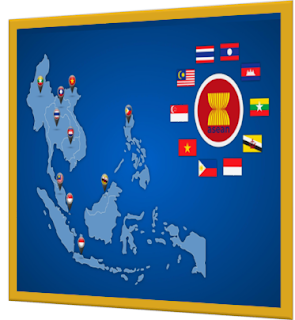NATO: The Alliance Of The West
Did You Know:-
🌐What is NATO?
🌐What are its Recent Action?
🌐What are Reactions of Various Countries?
1. What is NATO?
NATO, short for North Atlantic Treaty Organization, is a military alliance established in 1949 comprising nations from Europe and North America. Its purpose is to safeguard the security and freedom of its member states from the Soviet Union in 1949, after the Berlin Blockade.
2. What are its Recent Actions?
Some of its recent Actions are:
- Supporting Ukraine: NATO is providing Ukraine with unprecedented assistance to defend itself against Russia's invasion, which includes bolstering its military presence in the Baltic Sea.
- Membership Expansion: Sweden became the latest country to join NATO on March 7, 2024.
- Trying to Co-operate in Asia: NATO has recently tried expanse in Asia, though it was partly successful due to neutrality issues.
- Infrastructure Security Enhancement: To strengthen the protection of vital infrastructure, NATO has initiated the “Baltic Sentry” program.
- EU Cooperation: The NATO Secretary General has emphasized the importance of ongoing close collaboration between NATO and the EU in support of Ukraine.
- Core Responsibilities: NATO's primary responsibilities include deterrence and defense, crisis prevention and management, and cooperative security.
- Fundamental Objective: NATO's main objective is to safeguard the freedom and security of its member states through political and military means.
3. What Are The Reactions Of Other Countries?
- China: China has been critical of NATO’s expansion, viewing it as a threat to global stability and an attempt by the West to encircle both China and Russia. Chinese officials stress the importance of respecting sovereignty and oppose military alliances that could escalate tensions.
- Israel: Israel maintains a balanced approach, focusing on its security interests. While not an official NATO member, Israel has cooperated with NATO and may view Ukraine’s NATO aspirations as aligned with its own interests in countering regional threats, particularly from Iran.
- Russia: Russia has vehemently opposed NATO’s expansion, particularly concerning Ukraine. The Kremlin views Ukraine's potential NATO membership as a direct threat to its national security and geopolitical influence, exacerbating tensions and contributing to the ongoing conflict in Ukraine. His opposition is primarily because due to the expansion NATO. Russia will be more enclosed, and the west would more easily be able to attack Russia.
- India: India has rejected NATO membership due to concerns that it could damage its ties with Russia, a key strategic partner. Additionally, joining NATO could impact India's strategic autonomy, especially regarding its nuclear arsenal. India advocates for a non-aligned stance, emphasizing dialogue and diplomacy over military alliances. As seen in the refusal to join NATO+.
- ASEAN: The Association of Southeast Asian Nations (ASEAN) has remained cautious regarding NATO’s expansion. While member countries have diverse views, they generally emphasize regional stability and non-interference, expressing concern that NATO's actions may exacerbate global tensions and affect security in the Asia-Pacific region.
- Finland: Finland historically chose not to join NATO during the Cold War, with its neutrality being a condition of peace imposed by the Soviet Union in 1948. However, following the collapse of the Soviet Union, Finland reassessed its security stance and ultimately abandoned its neutrality, reflecting a shift towards closer ties with NATO in response to regional security concerns.
- Moldova: Moldova has not joined NATO and currently has no plans to do so. While it participates in the Partnership for Peace program and the Individual Partnership Action Plan, Moldova remains cautious about full NATO membership, balancing its relationships with both Western and Eastern powers.
Overall, the reactions to NATO's policies reflect a complex landscape of strategic interests and historical contexts. Each country or bloc considers its own geopolitical dynamics, with responses ranging from cautious engagement to outright opposition, highlighting the multifaceted nature of international relations in the face of NATO’s evolving role.



Comments